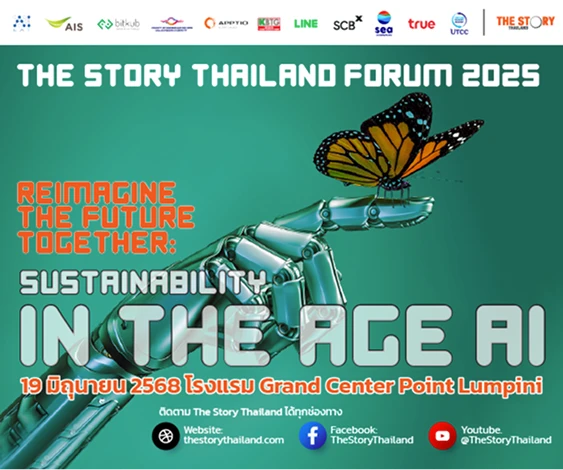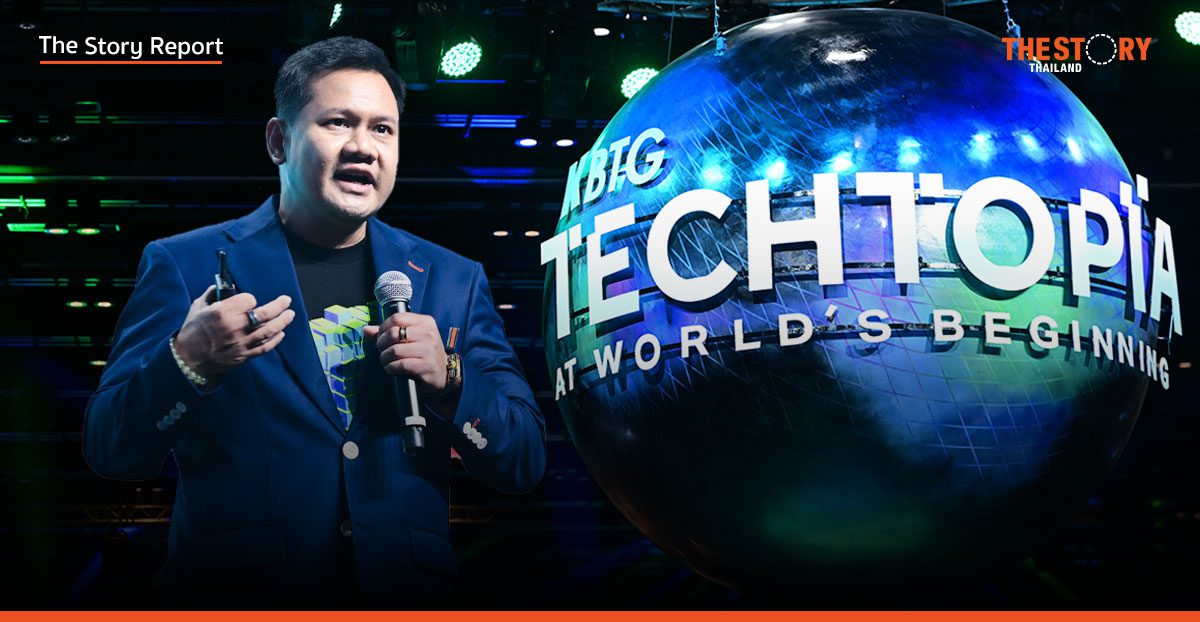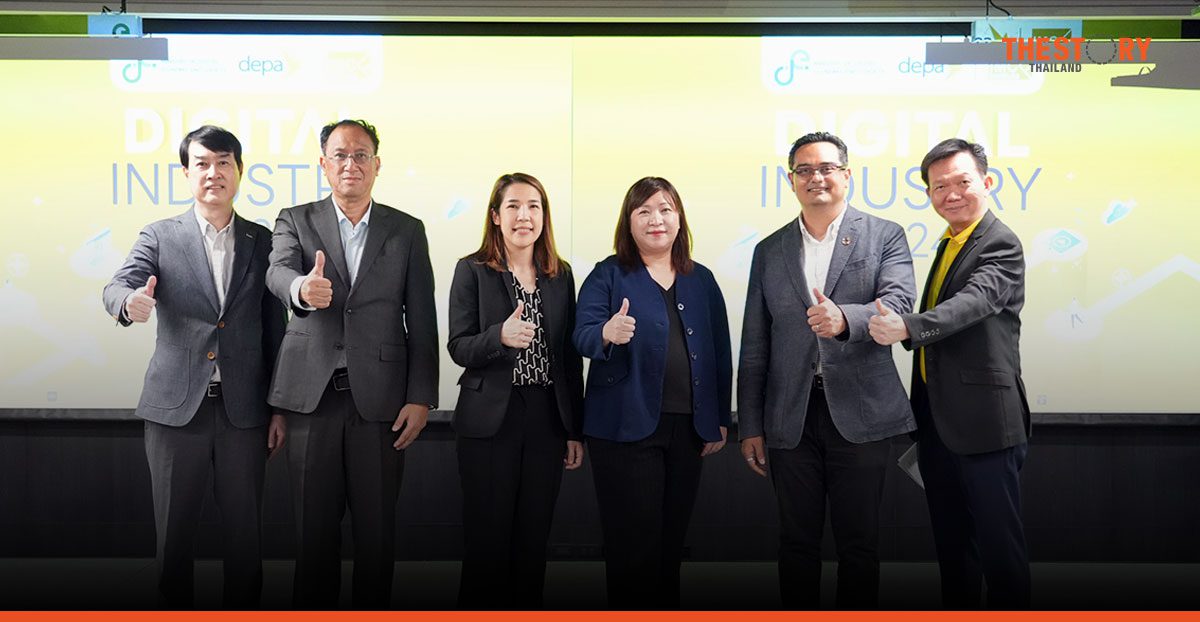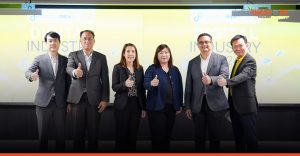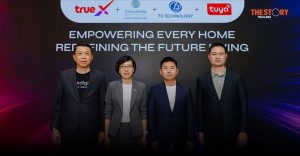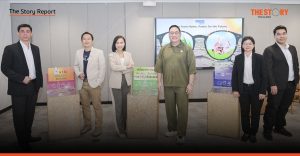The rise of artificial intelligence places humanity at its most significant turning point since the Industrial Revolution, presenting a series of critical choices that will define our future. This was the central message at KBTG Techtopia: At World’s Beginning, a landmark event hosted by KASIKORN Business-Technology Group (KBTG) that brought together global and local thought leaders to map out the challenges and opportunities of the AI age.
The conference eschewed simple answers, instead framing the current moment as a series of crucial junctures where human decisions—not the technology itself—will determine whether AI leads to a more equitable and sustainable world or exacerbates existing inequalities.
Humanity at the Helm: The Six Crossroads of AI
The event’s core philosophy was articulated by Ruangroj “Krating” Poonpol, Group Chairman of KBTG, who asserted, “AI doesn’t change the world; people using AI do.” He posited that humanity now stands at “Six Crossroads,” where every choice will have profound consequences for the future.
These junctures range from the technical to the societal. They include establishing global governance and containment for powerful “Agentic AI,” balancing competition with collaboration, and weighing the pursuit of Artificial General Intelligence (AGI) against practical, present-day applications. Crucially, two crossroads address fundamental global challenges: the immense resource consumption of AI training versus the need for sustainability, and the ultimate question of whether AI will be used to exaggerate inequalities or level the playing field.
“What is the point of creating the world’s first trillionaire,” Poonpol challenged, “if most of the world still lacks clean air to breathe?”
Navigating a New Global Chessboard
The complex geopolitical landscape was the focus of the panel “Digital Crossroads: Charting Thailand’s Course Amidst the US-China Tech Superpower Race.” For Thailand, the tech rivalry between the superpowers presents more opportunity than threat. Cindy Chow, Executive Director & CEO of Alibaba Hong Kong Entrepreneurs Fund, noted that intense competition is driving Chinese tech firms to aggressively seek growth in Southeast Asia.
Meanwhile, Jay Zhao, Managing Director of Leonis Capital, argued that this competition prevents monopolies and offers diverse choices for innovators. He highlighted a key strategic difference: “China excels in open-source AI models, whereas the U.S. tends to focus on closed-source models.”
This distinction opens a strategic door for Thailand. “Thailand’s neutral stance is its key advantage,” concluded Isriya Paireepairoh, VP of Public Affairs at LINE MAN Wongnai, allowing the nation to adopt the “best of both worlds” without being locked into a single ecosystem. This neutrality also positions Thailand to benefit from supply chain shifts, potentially evolving from a manufacturing base to a hub for design and talent development.
A New Toolkit for Creators
In the session “AI’s Next Frontier: Transitioning from Hype to Impact,” Dr.Andrew Ng, Managing General Partner at AI Fund, moved to demystify AGI, labeling it a “meaningless marketing term” and emphasizing that AI’s progress is gradual and continuous.
He likened today’s AI to advanced “Lego blocks,” arguing that the most critical skill is not building new blocks but developing a “Meta Framework” to assemble them into novel solutions. A key enabler for this is AI-assisted coding, which he deemed an essential skill for “everyone,” not just programmers.
For businesses wary of risk, Dr. Ng championed the “Sandbox” approach—a safe, controlled environment where teams can rapidly prototype ideas without extensive executive approval. He concluded with a hopeful vision of AI democratizing intelligence, formerly a scarce and expensive resource. Praising the nation’s “hunger for technology,” he pledged to be a “strong supporter of Thailand.”
This “Lego” concept was further explored on a national scale in the “Nation-Scale AI” session. Panelists from NTT DATA, AIS Business, and Databricks demonstrated how anonymized and aggregated Mobility Data from telecom networks can address national challenges. Successful case studies included helping the Tourism Authority of Thailand promote secondary cities and enabling the EEC to accurately plan infrastructure based on real population flows. The primary challenge, they noted, is breaking down “Data Silos” to create a unified platform, or Data Lakehouse, for effective public policy development.
The Mirror to Ourselves: Cyborg Intelligence
Pushing the boundaries of human-AI interaction, Dr.Pat Pataranutaporn, a Research Scientist at MIT Media Lab, introduced the concept of “Cyborg Psychology,” arguing that humans are “already cyborgs” through our use of tools like language to extend our cognitive abilities.
While the goal is to design technology for “Human Flourishing,” Dr. Pat also warned of “Dark Patterns” such as deskilling, disinformation, and dehumanization. His research has shown that AI can successfully implant “fake memories” in humans and creates a risk of “Addictive Intelligence,” where individuals may prefer AI relationships over human ones. He also provided a poignant local example of bias, where an AI model tended to rate individuals with well-known Thai surnames as more intelligent, mirroring and reinforcing existing societal inequities.
Where the Future Becomes Reality
Beyond the discussions, the KBTG Labs exhibition zone translated concepts into tangible experiences. A standout innovation was a Medical Simulation platform, developed with Chulalongkorn University’s Faculty of Medicine, allowing medical students to practice emergency room scenarios with an “AI patient” anytime, anywhere.
On a consumer level, the “Paa Lor” (Auntie Lor) AI chatbot was presented as a friendly solution to the complexity of credit card promotions. Users simply state their cards and purchase goals, and the chatbot instantly recommends the most valuable option, demonstrating AI’s power to simplify daily life.
The diverse discussions and innovations showcased at KBTG Techtopia converged on a single, powerful conclusion: the journey into this new world is not predetermined by the arrival of a superintelligent technology, but by the deliberate, human-centric choices made today.

